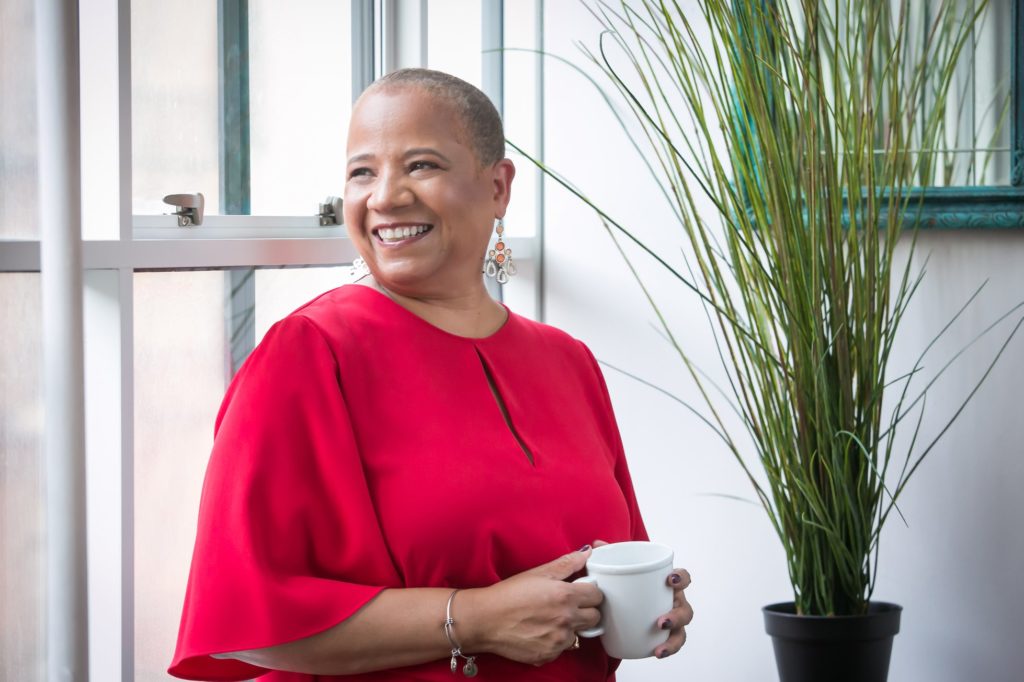As I opened an email titled “Congratulations! Your dissertation is approved.” I felt tears of happiness slowly running down my cheeks. I smiled, closed my eyes, and took a long, deep breath. It had been a long and difficult journey, but somehow, I felt that it was only a beginning – of a new era, the one where I officially had no reason to doubt myself. “I am a doctor now,” I thought to myself. “I did it, I proved them all wrong.”
For as long as I can remember I was told that I wasn’t good enough and compared to those around me who did everything better – read better, spelled better, spoke better. With my learning disability, it took me decades to make peace with the fact that I wasn’t worse than others, but that I was just different. Even after I started my own training company, during one of my first sessions someone pointed out to me that I misspelled a word in front of dozens of people whom I was training. I brushed it off, laughed, and corrected it, but deep down I was hurt. It surprises me that to this day we measure people’s intelligence with how well they can spell. Well, I am here to tell you that I run a successful business and I just finished my doctorate, and I am a terrible speller. I hope a small self-conscious kid out there reads this and realizes that to be happy and successful, one doesn’t need perfect spelling skills. I am not saying you shouldn’t learn how to spell, I am saying that if you struggle as much as I do with the written word, perhaps there are other skills that you can and should develop instead of beating your head against the wall trying to do what you are terrible at. We have an autocorrect for a reason, so we can focus on other things that matter – expressing who we are through deep creative work.

When I think about more concrete examples of how I managed to complete my Ph.D. program while running a full-time business, I realize that I started creating systems and habits around my lifestyle that supported me and helped me succeed. I myself struggled with the traditional education system that required memorization of information and following outdated methods of teaching, so I implemented new methods to my own studying and when developing my education products. The traditional education system requires you to sit down, read and highlight an article. With my busy schedule and my learning disability, I knew I could not possibly follow a traditional path. I didn’t have the time and the skills for that, so I adapted. I got an audio system and programmed it to read the articles to me and highlight the key points that I needed. I also got a recorder that I used for the first drafts of my papers and my dissertation. My mind works so fast that I simply cannot write my thoughts down on paper, so I record my voice, then take a day or two before coming back to process my recordings. This gives me time and space to work out a concept in my head and when I return to my original thoughts that were recorded, I am able to put them together in a logical order. Finally, I use a whiteboard where I record all my ideas, plans, and quick thoughts that need attention, which also helps to keep things in order.
Perhaps it’s time for us all to begin to focus on developing our strengths rather than trying to correct our weaknesses. Perhaps it’s time to let our children develop their talents and pursue their interests instead of stressing over them getting good grades. Perhaps it is also time for us to establish practices and systems that help us develop confidence and self-awareness and allow us to shine, so we can show a good example to our children – of how to live the life of meaning and purpose, and, as the one and only Maya Angelou put it, to “not merely survive, but to thrive.”
For breakfast, I had Bustello Coffee and a green shake.
Author: @soniatoledo
